|
With support from the Ministry of Education’s Higher Education Sprout Project, Southern Taiwan University of Science and Technology (STUST) continues to promote its distinctive International Project-Based Learning (iPBL) program. This initiative aims to cultivate students’ problem-solving abilities through collaborative cross-national projects involving three universities: STUST, Osaka Institute of Technology (OIT) in Japan, and the University of San Jose–Recoletos (USJR) in the Philippines. This summer, the faculty and students from the three institutions jointly hosted the event in Osaka, Japan (August 31 to September 5). Focusing on “Smart Sustainable Energy,” the three nations’ teams worked together to develop an innovative smart solar energy optimization system.
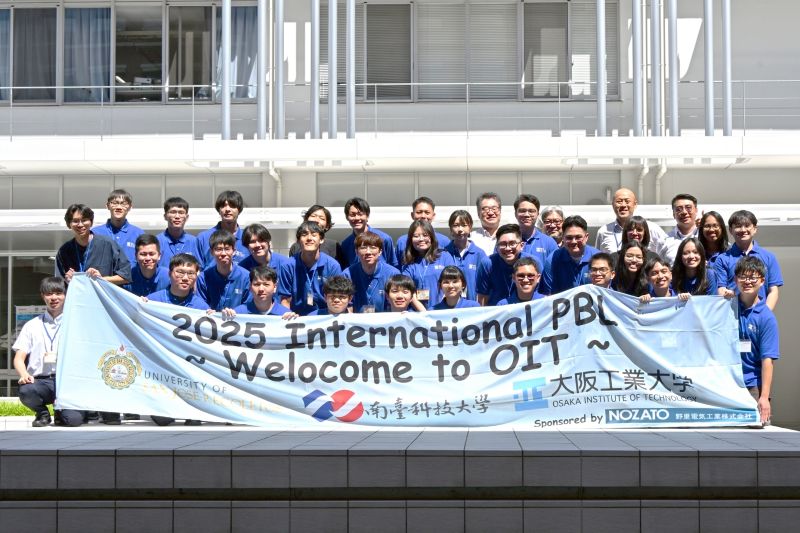
【Faculty and students from STUST, Osaka Institute of Technology (OIT), and the University of San Jose–Recoletos (USJR) jointly hosted the event in Osaka, Japan (August 31 to September 5). Focusing on “Smart Sustainable Energy,” the three teams worked together to develop an innovative smart solar energy optimization system.】
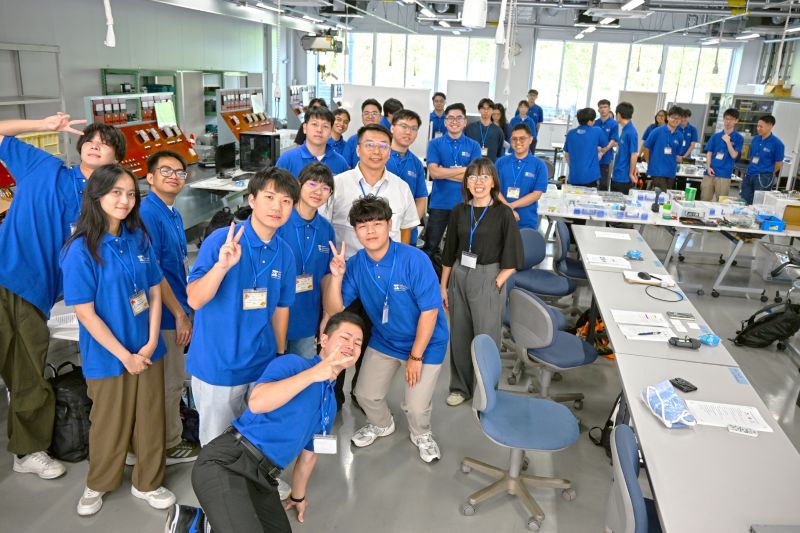
【The College of Engineering at STUST is promoting the iPBL international collaborative learning program in higher education by hosting a special collaborative learning event for Taiwan, Japan, and the Philippines. The program, initiated by the Osaka Institute of Technology in Japan in 2013, is now in its 12th year and was recently held in Osaka, Japan.】
iPBL International Collaboration: Cultivating AI Green Energy Elites From Theory to Practice As the global energy transition has become a critical issue, STUST sent a delegation of 10 students from the Departments of Electrical Engineering, Electronic Engineering, and Computer Science, led by Prof. Jia-Xing Shi of the Department of Electrical Engineering, to participate in Japan. Collaborating in cross-national teams, the students fully experienced the “design-implementation-analysis-verification” process, successfully completing a smart solar energy optimization system with high application potential. This event also marked the first time the iPBL program introduced AI technology into the energy field, utilizing a Problem- and Project-Based Learning model. This approach helped students use data analysis and algorithms to explore the optimal efficiency of energy conversion, demonstrating the value of interdisciplinary collaboration.
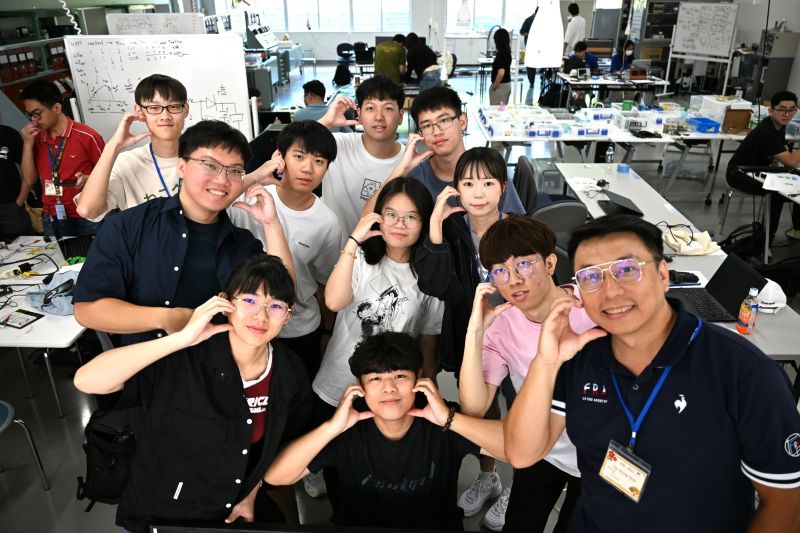
【STUST sent a team of 10 students from the Departments of Electrical Engineering, Electronic Engineering, and Computer Science, led by Prof. Jia-Xing Shi of the Department of Electrical Engineering, to participate in the iPBL international collaborative learning project in Japan.】
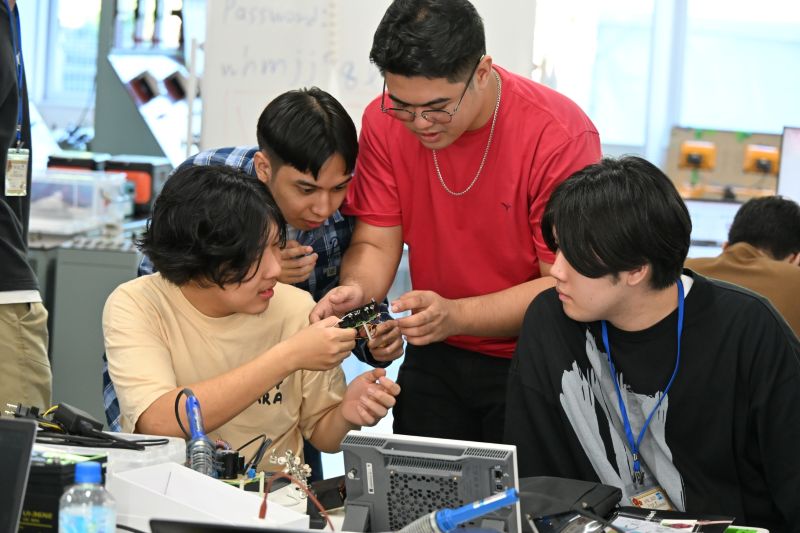
【The students, working in cross-national teams, the students fully experienced the “design-implementation-analysis-verification” process, successfully completing a smart solar energy optimization system with high application potential.】
AI Green Energy and the International Sustainable Future: Fostering Practical Spirit and Global Vision Dean Ming-Tsun Tsai of the College of Engineering, STUST, stated that with the support of the Ministry of Education’s Higher Education Sprout Project and STUST’s long-standing mechanism for promoting cross-national cooperation, students can quickly adapt to a cross-cultural environment in the face of real engineering challenges, completing projects that are both innovative and practical. This not only deepens their professional capabilities but also significantly enhances their international mobility and competitiveness, fully preparing them for the international future of AI green energy and sustainable development.
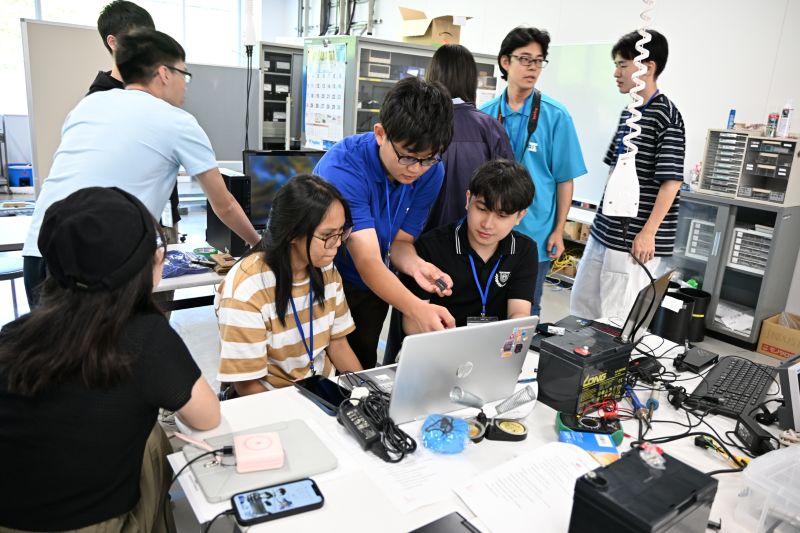
【This event also marked the first time the iPBL program introduced AI technology into the energy field, utilizing a Problem- and Project-Based Learning model to help students use data analysis and algorithms to explore the optimal efficiency of energy conversion, demonstrating the value of interdisciplinary collaboration.】
Vice Dean You-Zhen Chen of the College of Engineering, STUST, also pointed out that Taiwan possesses world-class strength in software and hardware integration. Vocational and technical universities must not only cultivate interdisciplinary talent but also ensure that Taiwan's talent possesses the capability for cross-national cooperation and technical integration. Through this cross-national academic cooperation mechanism, students can cultivate engineering problem-solving abilities by completing specialized projects, thereby training talent that meets international industry demands.
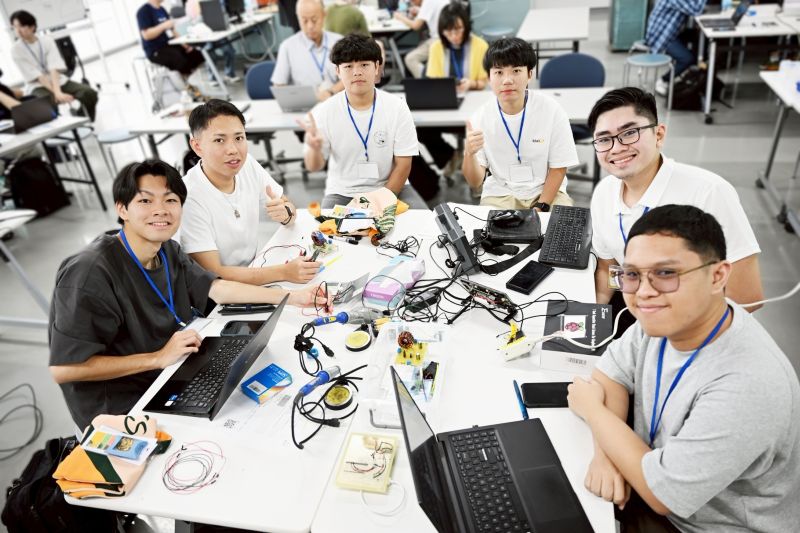
【Students from the three countries jointly were reviewing the operation of the smart solar energy system and sharing data analysis results. Cross-national cooperation not only deepens professional knowledge but also sparks different mindsets, making the project outcomes more innovative.】
Continuous Deepening: A Model for International Cooperation and Future Outlook It's worth noting that the iPBL program has become a model for cross-national cooperation in Asian higher education since its inception. The three universities take turns hosting the event annually, allowing students to cross national borders and cultures to jointly tackle global issues. The next event will be hosted by the University of San Jose–Recoletos (USJR) in the Philippines, and STUST will continue to lead students in participating, collaborating with international students from different cultural and professional backgrounds to cultivate professional talent with a global perspective and interdisciplinary competence.
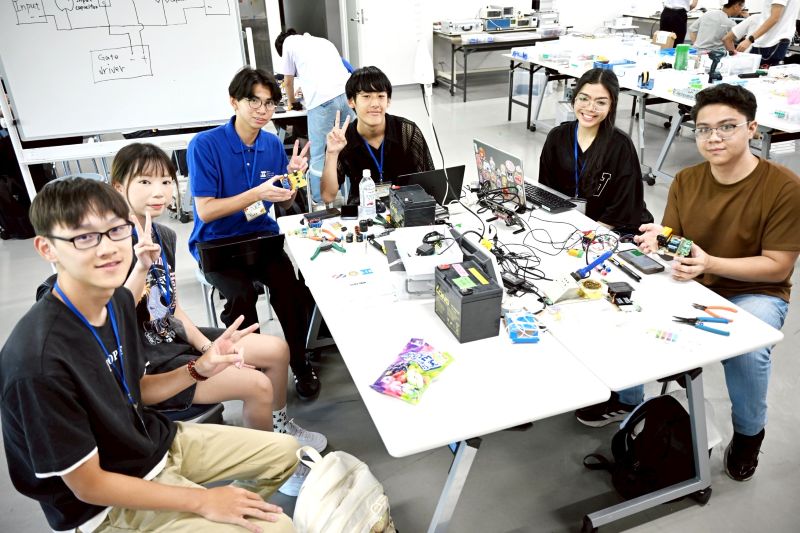
【Under the guidance of their teachers, the students were divided into groups for project research and development. The student representatives from the three countries were jointly displaying their successfully constructed smart solar energy optimization system; the results are impressive.】
Only by Going Global Can We See the Future President Nen-Fu Huang of STUST stated that the universtiy has long been committed to cultivating a new generation of AI international talent, and the iPBL cross-national project implementation is the best stage for student growth. He pointed out that in the process, students can not only strengthen their professional knowledge but also hone their ability to solve practical problems and build cross-cultural communication and team coordination skills—all core competencies highly demanded by future international industries. President Nen-Fu Huang emphasized that only by going global can we see the future. STUST will continue to focus on cross-disciplinarity, cross-nationality, and cross-culture to cultivate smart sustainable energy talent with global competitiveness, allowing students to continue to shine on international higher education.
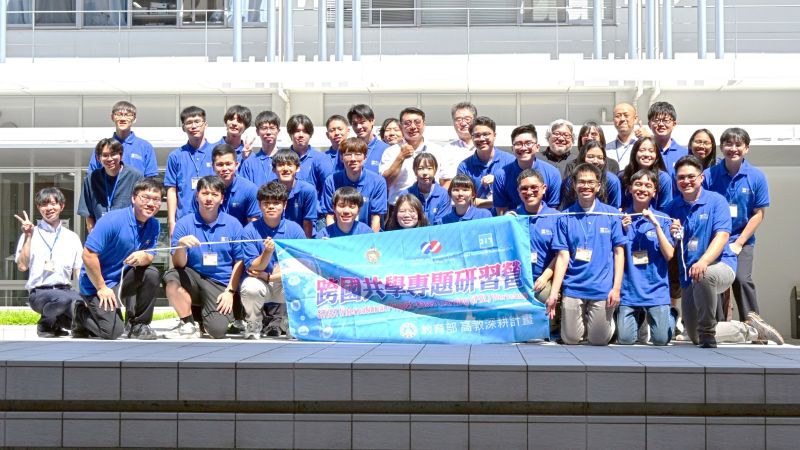
【Members of the iPBL team from the College of Engineering, STUST, expanded their international horizons. This journey of cross-national collaborative learning allowed them to not only acquire professional knowledge but also better understand cross-cultural issues, turning them into true international talent.】
|